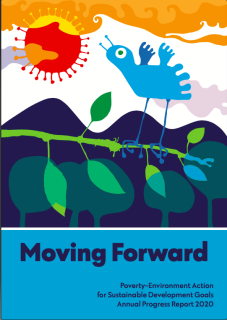
The Poverty-Environment Action for Sustainable Development Goals (PEA) project is a joint initiative between the United Nations Development Programme (UNDP) and the United Nations Environment Programme (UNEP). It aims at mainstreaming environmental sustainability and climate objectives for poverty eradication into development planning, budgeting and monitoring systems, public and private finance, and investment. Eight full-fledged countries are being supported through the initiative: four in Africa (Malawi, Mauritania, Mozambique and Rwanda) and four in Asia (Bangladesh, Lao PDR, Myanmar and Nepal). Indonesia and Tanzania are being supported with technical assistance at the country level. Three technical assistance initiatives are supported at the regional level: on the blue economy with the Asian Development Bank, on green bonds with the Deutsche Geselleschaft für International Zusammenarbeit (GIZ), and on gender and climate-smart agriculture with UN Women.
In 2020, PEA continued to deliver on its objective of strengthening the integration of poverty-environment-climate objectives into policies, plans, regulations and investments of partner countries to accelerate delivery of the 2030 Agenda and the Sustainable Development Goals (SDGs). Notable achievements include 76 planning frameworks, legislation and regulations that integrate the poverty-environment nexus developed in eight countries; 7 government-led intersectoral coordination mechanisms established and supported that promote coherence of planning, frameworks, legislation and regulations; environmental, social and economic data collected, analysed and reported in five countries, ensuring a poverty-environment nexus perspective through national development and SDG monitoring systems; 18 guidelines and tools developed to manage private sector investment decisions that facilitate or prioritize quality investments; and 2 regional and global PEA partner programmes and agencies applying an integrated mainstreaming approach. The year also marked the start of three new strategic partnerships through technical assistance at the regional level: with the Asian Development Bank, GIZ and UN Women.
